Great hotels abound in Los Angeles, and there is no single best way to experience L.A – the time and effort required to brave the city's famously sluggish traffic means that, for many visitors, the place they choose to stay determines the flavor of their experience.
Right now, one of the most exciting options is to explore the street art and galleries of gritty downtown with the NoMad Hotel as your base. The just-opened venue is a spinoff of the trendy Manhattan namesake, complete with a restaurant from the Eleven Madison Park team.
Still, downtown isn’t for everyone. If you’re looking for more of an escape, considering one of these two new urban resorts offering diametrically opposed experiences in the City of Angels.
The Nobu Ryokan Malibu - co-owned by the chef Nobu Matsuhisa, Larry Ellison, actor Robert De Niro, and film producer Meir Teper – and Waldorf Astoria Beverly Hills are pricey, beautiful, and replete with special treats unique to their respective locations. Each is worth visiting; each will return memorable moments you’d miss by staying elsewhere.

Here’s how they compare.
Design
Nobu Ryokan: The intimate 16-room retreat is built like a traditional Japanese inn, with onsen-style soaking tubs and linen yukata robes in each room. Sliding glass doors form the only barrier between you and Malibu’s Carbon Beach.
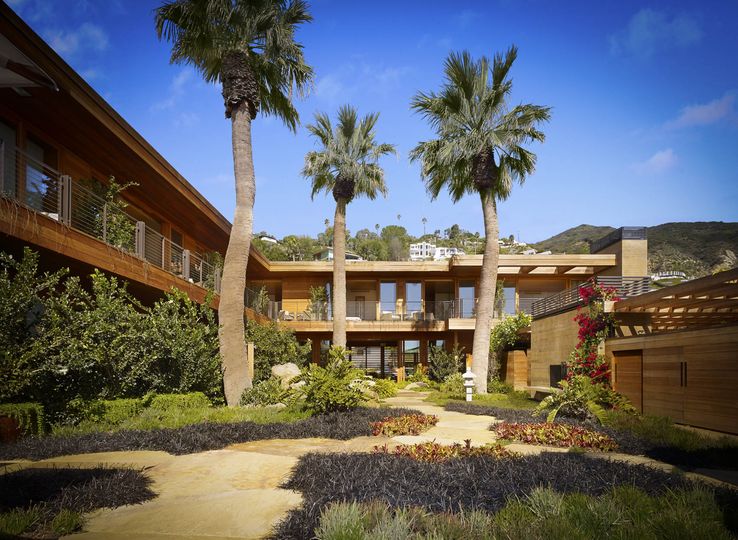
At night, it’s often warm enough to leave them open to invite the sea breeze - meaning you may also wake up to a view of dolphins frolicking in the morning waves of the Pacific. The entire property is so quiet and serene, you may never see another guest for the duration of your stay.
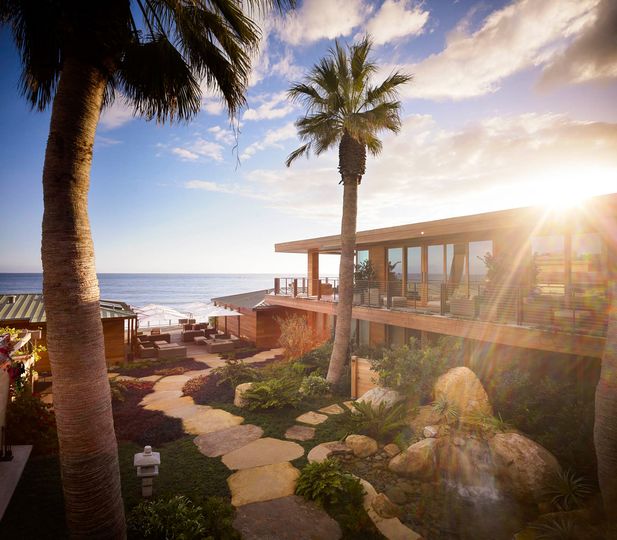
Waldorf Astoria: Arrival at this glossy, art deco-style hotel is via a circular, Bentley-filled driveway nestled between Wilshire and Santa Monica boulevards. The elegant structure makes a grand first impression even before you walk through the imposing lobby, with European-style settees, towering floral arrangements, and a crystal chandelier.
Its 170 rooms are incredibly spacious, with commanding views looking over greenery toward Rodeo Drive. They have walk-in closets (yes, multiple) that are practically the size of a New York apartment and walls as thick as a bank vault’s. Everything is heavy and ample to the touch, from the front door to the thick drapes to the plush, velvety bathrobes. Fresh flowers add to the feeling that this, indeed, is a special place.
Staying the night
Nobu Ryokan: It’s easy to miss the driveway when you first arrive at the Ryokan – seclusion is a double-edged sword - but the experience is mostly seamless, otherwise.
Check-in is surprisingly informal for such an expensive hotel: Staffers greet guests from behind a simple wooden table and gather room details via iPad. And without a gym, room service, or a spa, the Ryokan relies heavily on the comfort of its rooms. Fortunately, the large, low beds offer immediate respite from the stimuli of daily life.
And the jewel of each room, the Jerusalem limestone-clad bathroom, features a skylight and blond-wood Japanese soaking tub fit for two. The wooden pail and artisan salts set nearby are the kind of modest but indulgent details at which the Ryokan excels.
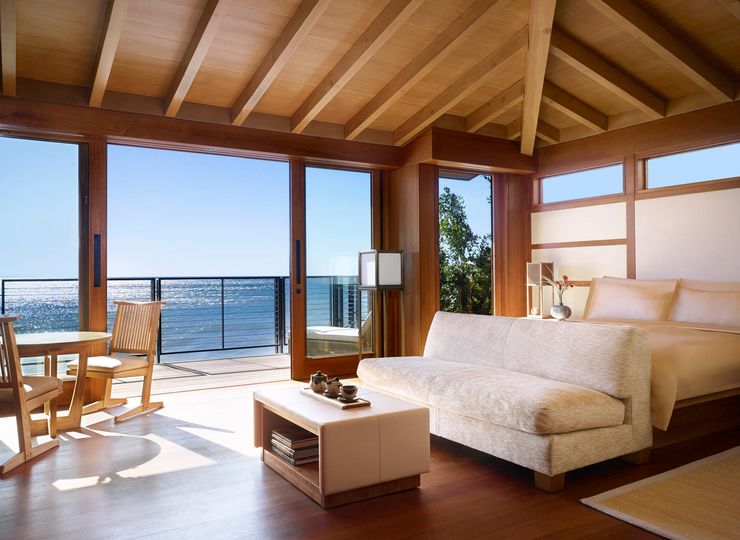
Waldorf Astoria: Every guest at the Waldorf is assigned a personal valet at check-in. They are reachable 24-7 via a dedicated phone number. And unlike butlers at many hotels – who wear smart uniforms but do little in the way of fulfilling personal requests - they will happily run errands of all shapes and sizes. (Need something delivered downtown at last-minute notice? No problem.)
As for the accommodations, the 119 deluxe rooms and 51 suites designed by Pierre-Yves Rochon are glamorous and stately, with floor-to-ceiling windows, expansive decks, and city views that extend for miles. Everything within eyesight looks and feels luxuriant – justifying the hotel’s $200 million price tag.
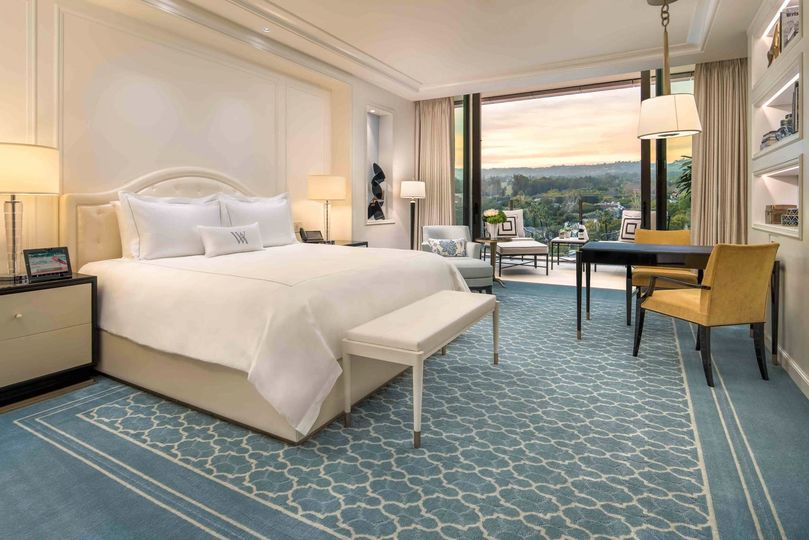
Having a bite
Nobu Ryokan: Despite being named after a chef, food at the Ryokan is basically non-existent, aside from sundry snacks on the counter in each room. The hotel doesn’t have a restaurant on site. But the Nobu next door offers priority access for Ryokan guests; that’s a significant perk, considering it’s one of the city’s hottest reservations.
If you’re looking for the scene in LA, it’s right there: You’ll find Lamborghinis parked out front, and Joe Rogan might be at the next table with a handful of women. The food – yellowtail sashimi, rib-eye with truffle butter, Kobe beef with crispy shiitake mushrooms – is predictably wonderful.
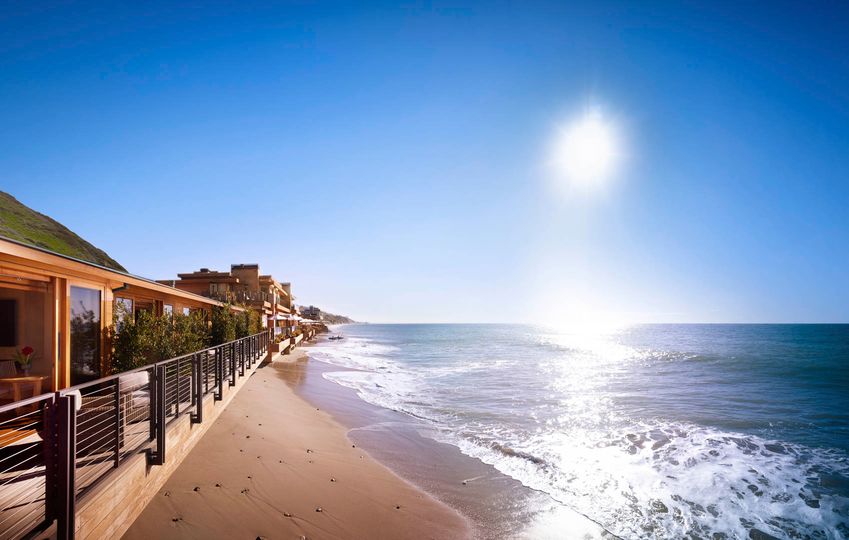
Waldorf Astoria: Jean-Georges Vongerichten helms both on-site restaurants: one on the ground floor and a second that flanks a limestone roof deck with VIP poolside cabanas. Breakfasts include indulgences and figure-conscious options alike. (Think thick buttermilk pancakes, chia seed pudding, and acai bowls.)
At dinner, it’s easy to slide up to the long, New York-style bar for a burger and an expertly-made boulevardier - or sit at a white-tableclothed table for an elaborate multi-course meal with caviar, tagliatelle, and roasted wagyu beef tenderloin.
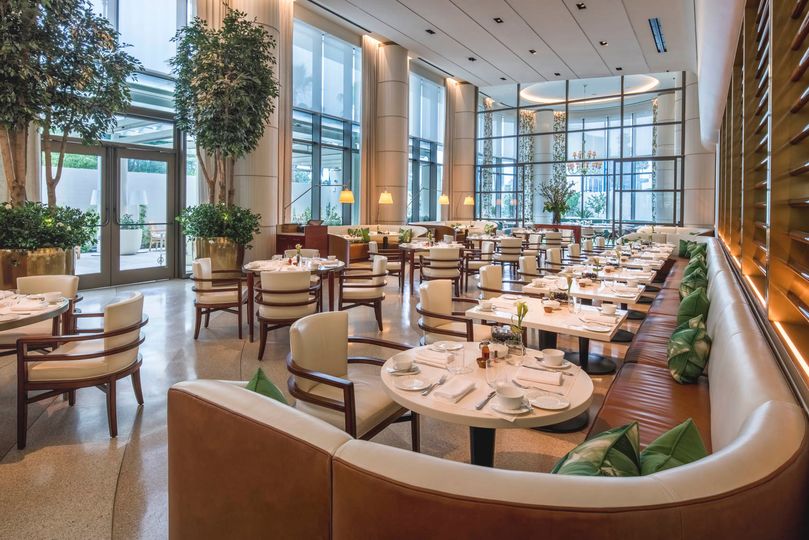
After hours
Nobu Ryokan: There’s no late-night action at the Ryokan itself. That’s part of the charm. The most you’ll get is a moonlit walk along the beach, which is magical and memorable in the best way. If you want to people-watch, pop in next door to Soho House Malibu or Nobu restaurant. There’s plenty of nighttime preening opportunities at either.
Waldorf Astoria: Following dinner hours, the roof deck becomes a lively place for cocktails and lingering conversations, all with views that extend from the Hollywood Hills to downtown L.A. Tall, outdoor heaters and a large fireplace stave off any springtime chill or damp that can settle on LA nights early in the year. If you’re not a member of the Soho House, which has a famously exceptional view of the city, this 12th-floor deck is your move.
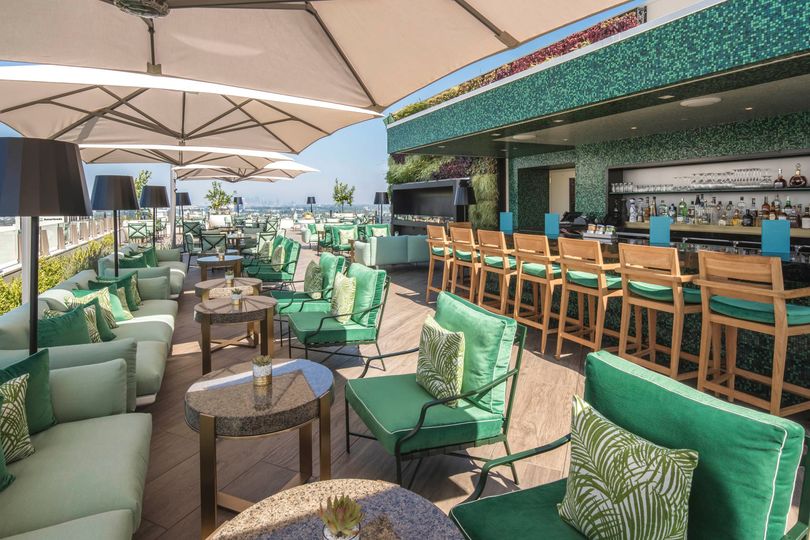
Adding it all up
Nobu Ryokan: The only flaw we encountered at the Nobu Ryokan came courtesy of the security staff, which awkwardly mistook my travel companion for an interloper and demanded he leave. (It soured the last day of an otherwise-exceptional stay.) It does, however, speak to the property’s desire to create an intensely private, anti-Hollywood hideaway amid several billionaire-owned estates.
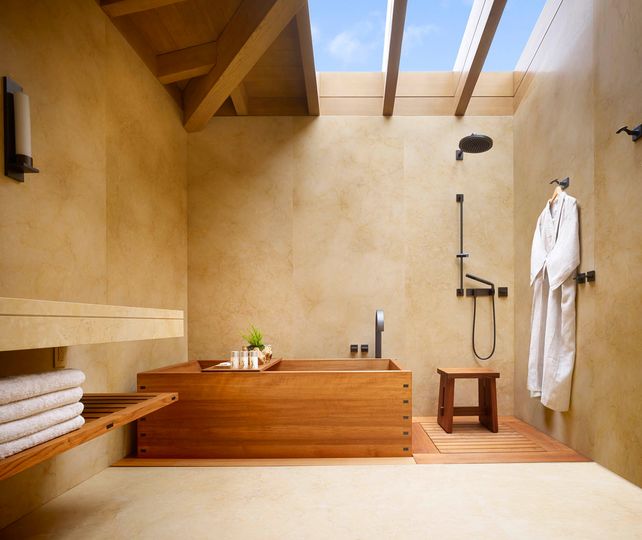
With its naturally stained teak, soft, earthy tones, clean lines, and verdant garden - plus unmatchable ocean views - it magically channels the minimal aesthetic of a traditional Japanese inn. In a city where most posture to be seen, the art of not being seen becomes preeminent here. Rooms from US$2,000 per night in low season.
Waldorf Astoria: A bastion of Old World glamour, the Waldorf Astoria is a game-changer in L.A.’s pantheon of stellar hotels. It will settle right in with crown jewels Chateau Marmont, Sunset Tower, Four Seasons, Peninsula, and Bel-Air Hotel as important and iconic, and it’s easily on par with the best hotels in London, Tokyo, or Geneva. It may feel overly formal to certain travelers, especially in this laid-back city.
But for those wanting a true five-star experience, with impeccable service, immaculate appointments, and all the benefits of a 5,000-foot La Prairie Spa on the second floor, it will delight and thrill at every turn. Rooms in low season start at US$815 per night.
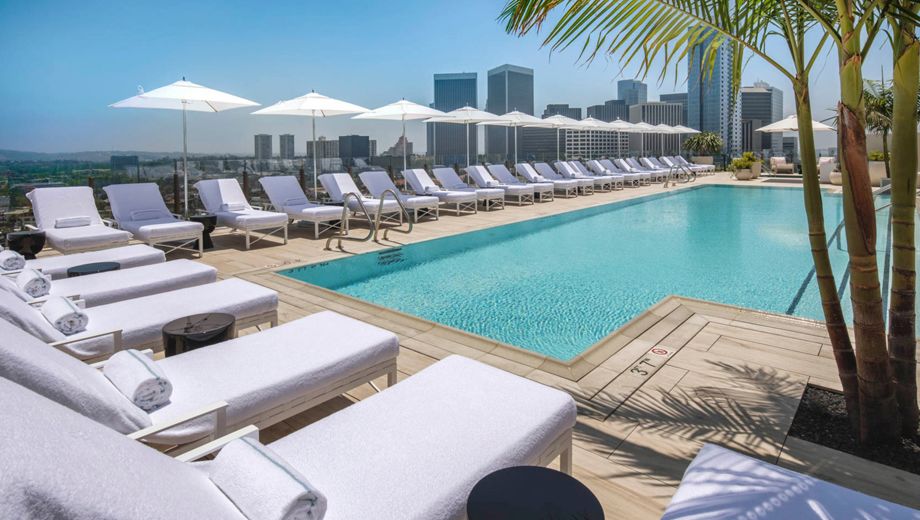
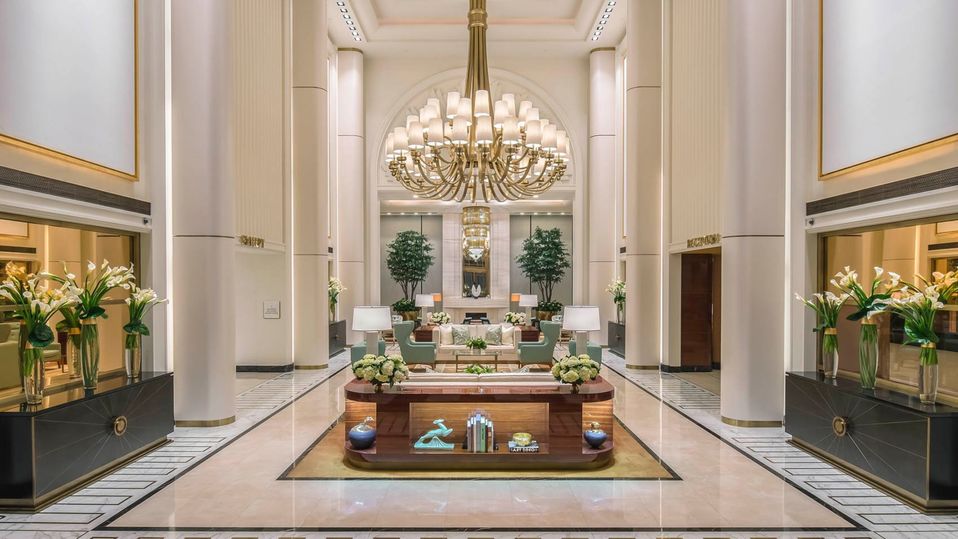
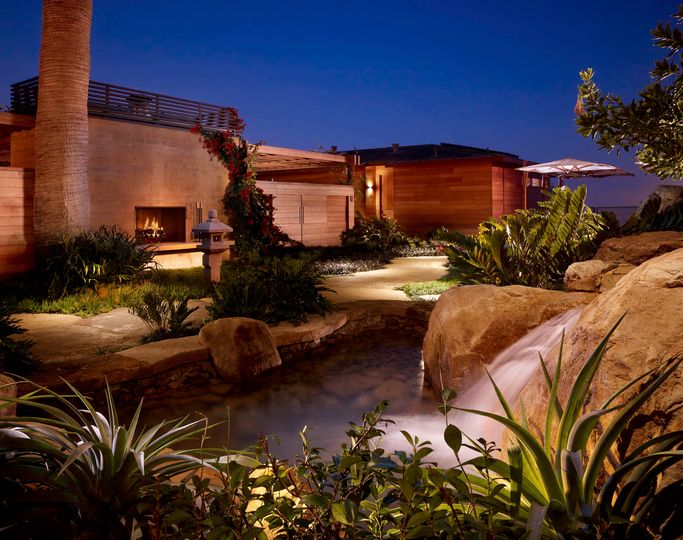

Virgin Australia - Velocity Rewards
26 Jun 2011
Total posts 78
Highly recommend dining at the Waldorf's "The Rooftop" in the evening. Amazing food and service. When booking, make sure you request to be seated with a view over the city. The lights of LA are quite impressive (who knew). And the Lobster Burger is pure perfection!
QF
04 Apr 2014
Total posts 209
Hi Guest, join in the discussion on Reviewed: Los Angeles' two best new hotels